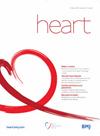Early and long-term outcomes of conventional and valve-sparing aortic root replacement
引用次数: 4
Abstract
Objective To determine the early and long-term outcomes of conventional aortic root (ARR) and valve-sparing root replacement (VSRR) using a standard perioperative and operative approach. Methods We present prospectively collected data of 609 consecutive patients undergoing elective and urgent aortic root surgery (470 ARR, 139 VSRR) between 2006 and 2020. Primary outcomes were operative mortality and incidence of postoperative complications. Secondary outcomes were long-term survival and requirement for reintervention. Median follow-up was 7.6 years (range 0.5–14.5). Results 189 patients (31%) had bicuspid aortic valves and 17 (6.9%) underwent redo procedures. Median cross-clamp time was 88 (range 54–208) min with cardiopulmonary bypass of 108 (range 75–296) min. In-hospital mortality was 10 (1.6%), with transient ischaemic attacks/strokes occurring in 1.1%. In-hospital mortality for VSRR was 0.7%. 12 patients (2.0%) required a resternotomy for bleeding and 14 (2.3%) received haemofiltration. Intensive care unit and hospital stay were 1.7 and 7.0 days, respectively. During follow-up, redo surgery for native aortic valve replacement was required in 1.4% of the VSRR group. Overall survival was 95.1% at 3 years, 93.1% at 5 years, 91.2% at 7 years and 88.6% at 10 years. Conclusions ARR and VSRR can be performed with low mortality and morbidity as well as a low rate of reintervention during the period of long-term follow-up, if performed by an experienced team with a consistent perioperative approach. This series provides contemporary evidence to balance the risks of aortic aneurysms and their rupture at diameters of <5.5 cm against the risks and benefits of surgery.传统和保留瓣膜的主动脉根部置换术的早期和长期疗效
目的采用标准围手术期和手术方法,确定传统主动脉根部(ARR)和保留瓣膜根部置换术(VSRR)的早期和长期疗效。方法我们前瞻性收集了2006年至2020年间609名连续接受选择性和紧急主动脉根部手术的患者(470名ARR,139名VSRR)的数据。主要结果是手术死亡率和术后并发症的发生率。次要结果是长期生存率和需要再次干预。中位随访时间为7.6年(0.5-14.5)。结果189名患者(31%)接受了二叶主动脉瓣手术,17名患者(6.9%)接受了再手术。中位交叉钳位时间为88(范围为54–208) 心肺转流108分钟(范围75-296) 最小住院死亡率为10(1.6%),其中1.1%发生短暂性脑缺血发作/中风。VSRR的住院死亡率为0.7%。12名患者(2.0%)因出血需要再海绵切开术,14名患者(2.3%)接受血液滤过。重症监护室和住院时间分别为1.7和7.0 天。在随访期间,1.4%的VSRR组需要再次进行主动脉瓣置换手术。总生存率在3年时为95.1%,在5年时为93.1%,在7年时为91.2%,在10年时为88.6%。结论ARR和VSRR可以在长期随访期间以较低的死亡率和发病率以及较低的再干预率进行,如果由经验丰富的团队采用一致的围手术期方法进行。该系列提供了当代证据来平衡直径<5.5的主动脉瘤及其破裂的风险 cm对抗手术的风险和益处。
本文章由计算机程序翻译,如有差异,请以英文原文为准。
求助全文
约1分钟内获得全文
求助全文

 求助内容:
求助内容: 应助结果提醒方式:
应助结果提醒方式:


